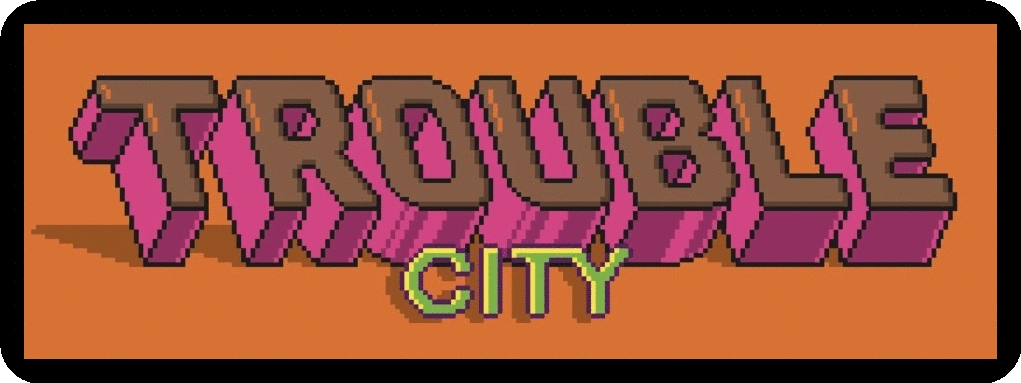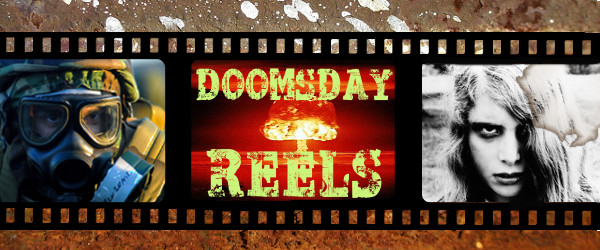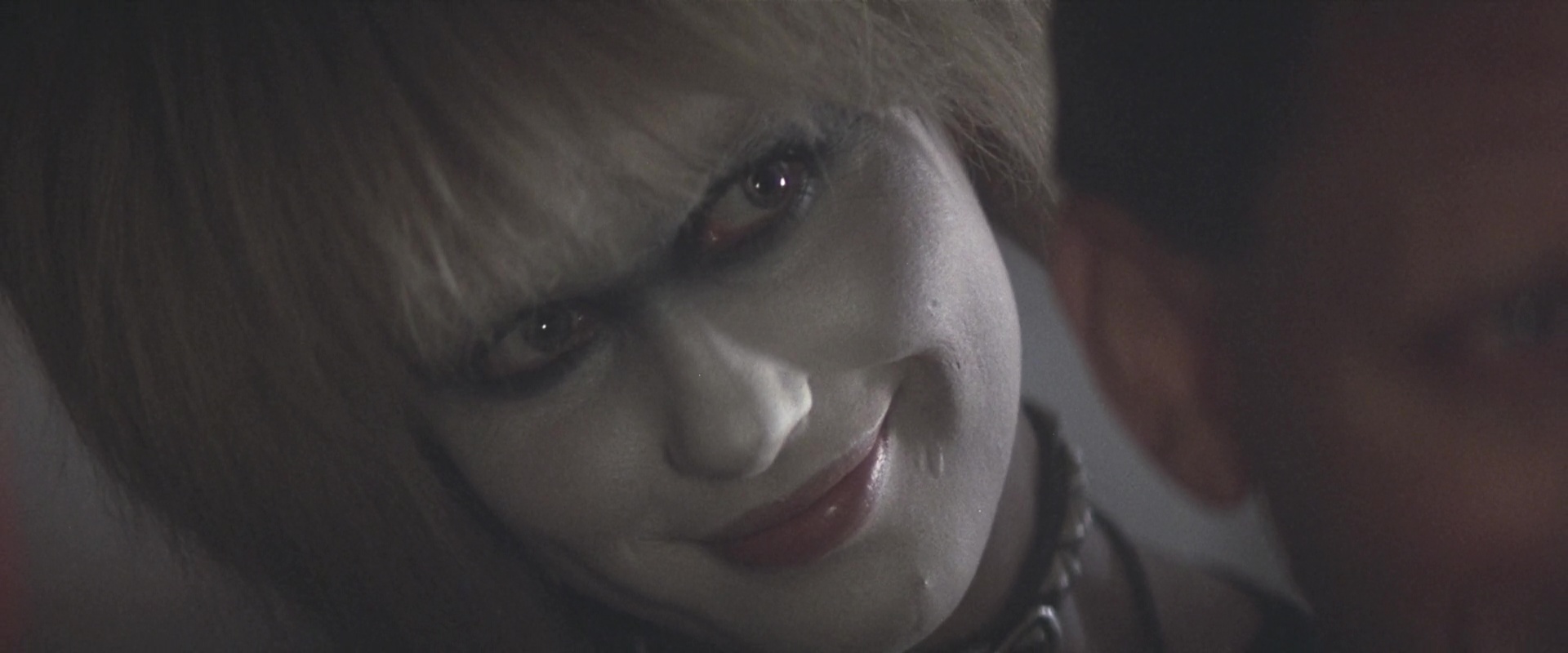Blade Runner (1982)
The Director
Ridley Scott
The Actors
Harrison Ford (Rick Deckard), Rutger Hauer (Roy Batty), Sean Young (Rachael), Edward James Olmos (Gaff), M. Emmett Walsh (Bryant), Daryl Hannah (Pris), William Sanderson (J.F. Sebastian), Brion James (Leon Kowalski), Joe Turkel (Dr. Eldon Tyrell), Joanna Cassidy (Zhora), James Hong (Hannibal Chew)
The Trailer
The Cause
Pollution/War
The Story
"They don't advertise for killers in a newspaper. That was my profession. Ex-cop. Ex-Blade Runner. Ex-Killer." - Deckard, narration.
The Rundown
When I sat down to plan out this column in the long-forgotten days of 2014 I wrote out a list of every single post-apocalyptic/dystopian movie I could think of off the top of my head. Of that list of some 400 movies that I still have tucked in a spiral notebook in the dregs of my desk there were three particular films I dreaded watching again, and dreaded reviewing even more. Those movies were: Kevin Costner's The Postman, David Lynch's Dune, and Ridley Scott's Blade Runner.
Before we get into this, yes, I am one of those people. I have tried to watch Blade Runner at numerous points in my life and I either lost interest completely or fell asleep. My first successful attempt to even watch this movie all the way through was last month when I watched it about an hour before going to the theater to see Blade Runner 2049. Surprisingly this last viewing finally took and I am willing to admit that I get why Blade Runner is considered one of cinema's great classics. With that said, if you hated me for how I reviewed Star Wars then you're going to hate me for this.
One more little note before I go into this further. Since Blade Runner is available in a plethora of cuts, I have decided to (as I did with Highlander: The Quickening) cover the three primary cuts of the movies; so expect those on Wednesday and Friday of this week.
Blade Runner opens in the far-off future of 2019 where Rick Deckard (Harrison Ford), former Blade Runner (a bounty hunter for a race of organic androids known as Replicants) is pulled out of retirement to track down four dangerous Replicants that have come to Earth. In the process, Deckard becomes romantically entangled with Rachael (Sean Young), who is a new kind of a replicant developed to be "more human than human." In the meantime the four replicants Pris (Daryl Hannah), Leon (Brion James), Zhora (Joanna Cassidy), and Roy Batty (Rutger Hauer) seek to find their creator, Eldon Tyrell (Joe Turkel), and extend their four-year lifespan.
Harrison Ford plays a pretty standard Film Noir gumshoe. Tired, grizzled, quick-witted but bad in a fight. There was a point in the Ford's career where a tired, bitter, grump-ass like Deckard was the the exception to his film roles rather than the rule. Still there's an understated spark to Deckard that comes out in small ways, a certain boyish sense of mischief that was the Harrison Ford trademark at the time. The best use of this is when he infiltrates the dressing room of the first replicant, Zhora, as an advocate for the rights of theater performers. He effects a dweebish accent and plays a sort of knobby-kneed doofus to get her off-guard, it's a great peek under the hood to the calculated brain beneath Deckard's hard-boiled veneer.
There are four enemy replicants in this movie but Joanna Cassidy's Zhora barely even has one scene, and while I love Brion James tenderly soft-spoken yet unhinged Leon, the real stars of the show are Rutger Hauer's Roy Batty and Daryl Hannah's Pris.
Pris is a "pleasure model", so her main skill is subterfuge. She knows when to be vulnerable or tender or coquettish. Her role in the film is to ingratiate herself to genetic engineer J.F. Sebastian (William Sanderson) so that he will grant Roy Batty an audience with Eldon Tyrell. Pris is frightening from scene one and that's before she's painted herself up like a China doll and doing cartwheels whilst screaming at the top of her lungs. Her doll makeup is one of the most iconic visuals of the film but the way we see her mask slip from flirtatious ally when Sebastian is looking at her to duplicitous femme fatale when he's not is unsettling to say the least.
Rutger Hauer is the show-piece of the film. If the man has ever given a bad performance then I'm unaware of it, but (with the exception of his turn as John Ryder in the 1986's The Hitcher) Roy Batty is Hauer's finest performance. Zhora, Pris, and Leon are all frightened animals backed into a corner, they're just trying to find a way to safety but Roy is on a journey of discovery. Roy is Moses, who is walking up his own proverbial Mount Sinai to meet God and demand answers. Roy doesn't just want to have his life and the lives of his compatriots extended, he wants answers and if he doesn't get him the fury he unleashes will be biblical.
The final showdown between Roy and Deckard in a derelict apartment building is a tremendous set-piece and there aren't a lot of other examples I can point to of two great actors firing on all cylinders in opposition to one-another. Roy's ending monologue is a monolith of popular culture but his brief musing on the impermanence of everything is beautiful and mournful all at once.
The special effects and set-design on this movie are literally amazing. Each shot is filled with a menagerie of small details that no one would be able to take in in one or even a hundred viewings. This makes so many of the film's long shots look like paintings and conveys a sense of scope and credibility. That's not to speak of the work the film does with miniatures and models to convey the skyline of Los Angeles in the year 2019. The world of Blade Runner doesn't merely look real, it feels real and that adds an amazing amount of depth to the movie.
Of course the sets would be nothing without the work of cinematographer Jordan Cronenweth who was instrumental in the look of the movie. Every shot is filled with billowing smoke or steam and sometimes rain, long deep shadows and occasionally rotating lights communicate a false "natural" lighting. It's the perfect fusion of old film-noir style cinematography melded with a new cyber punk aesthetic. In compliment to the sets and makeup and wardrobe is the film's soundtrack by Greek composer Vangelis whose dark futuristic score conveys the sound of dystopia as well as the visuals convey the look.
The 1982 US theatrical cut of Blade Runner is the red-headed stepchild of the various cuts of the movie. It's not the work-print that was shown to and loved by author Phillip K. Dick prior to his untimely death and it's not the film that Ridley Scott wanted to make, but the differences between this cut and the others are a lot smaller than people make them out to be. Since we're specifically talking about the theatrical cut, I'll save discussions of unicorns and origami for another column. So that leaves the voice-over.
Deckard's narration of the film, a studio-mandated last-minute change done without the consent or involvement of director Ridley Scott, is a thing of infamy. You cannot talk about this cut of the movie without taking a pot-shot at the narration. But I'm going to make a very controversial statement here and say that it's not the studio's fault that the narration is bad. It's Harrison Ford's fault.
Harrison Ford has come to be known as one of Hollywood's biggest belligerent assholes in recent years. He seems to belong to that cadre of man's man actor (among his number are Bruce Willis, Robert DeNiro, and Tommy Lee Jones) who is perfectly affable so long as you don't ask him to do what he doesn't want to do. It would appear however that this trademark crotchety attitude is a hallmark not of age but general disposition.
The narration in Blade Runner isn't really that bad on paper. Sure it's largely redundant, but so is Deckard saying "memories, you're talking about memories" to Tyrell as he has just explained to Deckard that he has implanted true-life experiences into Rachael's mind. But the movie is at times frustratingly tight-lipped about what it's trying to say as though Ridley Scott realized he couldn't explain complex ideas without clunky explanation so his solution was to explain nothing at all.
The Deckard narration gives us some insight into who Rick Deckard is as a person, because his unease at the concept of killing replicants often comes off as plain exhaustion from battle and his flip attitude between kills seems to imply that retiring replicants doesn't really stick with him. Sure, we can intuit what "skinjob" means on our own but the narration fills in some holes like what the fuck Cityspeak is and why this clearly non-asian man (Edward James Olmos' Gaff) is speaking what sounds like Japanese. Without the narration I wouldn't know what Cityspeak is even called, let alone that Deckard is having the chef translate for him not because he doesn't understand it but because he's trying to fool Gaff. There's other bad lines in this movie and the narration is nothing terribly egregious, it's just so horrible because Harrison Ford is reading it in the tone your mom used when she confronted you with that erotic Buffy the Vampire Slayer fan-script she found under your mattress.
The acting, visuals, and sound design of Blade Runner are an assault on the senses and I'm not surprised that people view it with such a set of rose-colored glasses, but there's a reason this movie doesn't connect with a good cross-section of audiences. Yeah, I fell asleep watching this movie at numerous points in my life and I'm far from alone in that. And it's not because I'm not a pretentious wad who loves boring movies, because I very much am that person, and that's the thing that confounded me so much about this movie for so long. So much of this movie is next-level amazing that it actually gaslights you for thinking that anything about it is bad.
It took years of my life and a lot of viewings to figure out what has always bothered me about this movie and I think I've finally nailed it. Ridley Scott is a tremendously dull director. It's not that he can't make a good movie, it's not that he can't make a fun movie, it's that he doesn't have that certain quality that makes movies flow well. I've never seen a Ridley Scott film that didn't have me spacing out for a few minutes somewhere in the middle (or from opening credits to closing in the case of Robin Hood) and while surrounding himself with geniuses and visionaries has worked to curb this quality of his movies (Ridley Scott on his own could never make Alien at any point in his career) it still bleeds through in all his movies to some degree.
Blade Runner does not flow well, at all. It starts out as a detective story and in that regard it works quite well but once Deckard is asked to do something more than brood and look for clues, it falls apart. His relationship with Rachael does not work and that's not because of bad writing (it works considerably better in Do Androids Dream of Electric Sheep, though it has a much different ending in the book) and I know a lot of people blame this on the lack of chemistry between Ford and Sean Young but I don't buy that. Harrison Ford and Carrie Fisher didn't have any chemistry either but the relationship their characters had worked very well, especially later in the trilogy. There's no scenes that convincingly show these characters falling in love except for the infamous sex scene. It's clear that what the scene needs to convey is that Rachael is insecure in knowing that she's not human and that what Deckard is doing is passionately showing her that she's human to him and that it doesn't matter whether she was born or made, he loves her. What the scene actually conveys is a rape that Rachael suddenly becomes into about midway through. Ridley Scott apparently felt that that scene conveyed the emotions it needed to as is (in fairness, most of Harrison Ford's movie relationships had rapey undertones) and moved on. Seeing as that scene is what Deckard and Rachael's relationship hinges on, and that their relationship is what the movie hinges on, it's a complete failure on the part of Deckard's story.
Of course Roy Batty's personal journey along with Pris is far more interesting and better executed but it's the b-story and it's peppered in amongst the long interminable slabs of Deckard's journey. On top of this, the movie keeps details from Phillip K. Dick's book that, divorced of the context in which they were presented, serve as little more than non-sequiturs. We know about the colonies on Mars and other planets but there's no mention of World War Terminus or the radioactive atmosphere, similarly J.F. Sebastian eludes to mutations and diseases with his own degenerative disease but there's never any real explanation of what's going on with those.
The movie even keeps one of the weirdest aspects of the book, the people of Earth's obsession with animals both real and replicant but there's no mention of why owls and snakes are scarce and expensive. As far as the audience knows there's rolling farmland as far as the eye can see outside of L.A. These things serve as unintentional red-herrings that distract from the plot which is actually rather sparse. Seemingly Deckard is only pulled out of retirement to save someone from the embarrassment of letting replicants get away but with their four year lifespan (which is nearly up in the case of Roy Batty) they're kind of a problem with its own solution. It's not as if Deckard stops Roy from carrying out any of his plan and the three replicants he actually does kill would have probably died in peace had he just left them alone.
I realize the senseless cruelty of Deckard's job is kind of the point of the story but the moralizing message of the movie fails here just as it did in the novel for the same reason. The replicants are all pretty awful and unlikable. Are they justified in their anger? Certainly, but their demeanor is almost gleefully thoughtless and cruel across the board and though Ridley Scott's replicants are much more sympathetic than Phillip K. Dick's androids who are completely devoid of empathy (he based the androids' demeanor on the account of a Nazi officer he found when doing research for The Man in High Castle, the man left a journal entry complaining that the wails of starving children were interrupting his sleep) the movie mostly posits Roy and his cohorts as "bad" replicants and Rachael as a "good" one. Deckard learns a valuable lesson about how humanity is in the eye of the beholder but that's almost completely at odds to what he's dealing with on the Roy Batty side of the film where he learns that replicants are selfish, violent assholes.
Now the movie's storytelling failures don't make Blade Runner a bad movie, the film is still far and away a net positive and its status as one of the greatest films of the 20th century is both accurate and deserved. I'm just saying that the achievement of Blade Runner may be more an accomplishment of the cast, the set designers, and the director of photography than the director and writer. Blade Runner's story is better at putting out ideas for the audience to ruminate on than it is at actually acting on those ideas. I'll get into the theories about Deckard on the next column but feel free to shout your hate at me via comment down below.
The Shill
The theatrical cut of Blade Runner is hard to track down in a physical form. You'd have to find a VHS, ancient DVD, or one of the few super special edition Blu-rays that have been released. Those are crazy expensive and I'm not even going to link to them for fear you'll actually give far too much of your hard-earned money to some bottom-feeding speculator. Amazon Instant does happen to have this cut for you to buy or rent.
Next Time on Doomsday Reels
"Memories, you're talking about memories."







